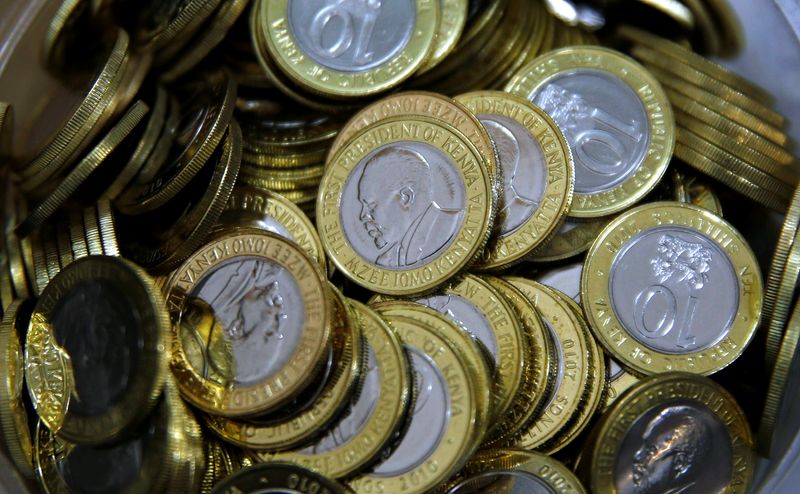By Duncan Miriri and George Obulutsa
NAIROBI (Reuters) -Kenya's government will no longer borrow money at interest rates of more than 10%, President William Ruto said on Friday, adding that the cost of debt had become "unacceptable".
Ruto, who was sworn into office in September, is seeking less costly loans after a debt-fuelled infrastructure construction drive by his predecessor saddled East Africa's largest economy with high-interest commercial debt.
"If we find that in the market we cannot find money at 10%, we will go back and re-look at other sources," he told a meeting of pension industry executives streamed online by his office.
"It is not possible for us to borrow at beyond 10%... the last borrowing we did was at 14%. That is unacceptable."
The weighted average yield on a 14-year Treasury bond auctioned on Wednesday was 13.938%, the central bank said.
The lack of mouth-watering yields from the government will help spur lending to the private sector as banks seek other opportunities, Ruto told the meeting.
But one market participant, who asked for anonymity due to the subject's sensitivity, said Ruto's plan was not likely to work because the cost of borrowing is determined by market forces, and the government's own funding needs.
"That is pure fantasy," the market player said, adding that investors will be forced to crowd the short end of the yield curve where interest rates are already below 10%.
The weighted average yield on the benchmark 91-day Treasury bill at this week's auction on Thursday was 9.173%, up from 9.139% a week earlier, the central bank said.
Ruto's government has opened talks with the World Bank for a new budget support loan pegged to a pre-agreed policy area, Finance Minister Njuguna Ndung'u said this week.
Kenya qualified for that type of financing in 2019 and it has since received four such loans, the last one in March.

Apart from the planned shift away from an over-reliance on domestic borrowing to concessionary financing, Ruto's government wants to cut the fiscal deficit sharply.
It is also revising this financial year's budget to cut expenditure by 300 billion shillings ($2.46 billion).
